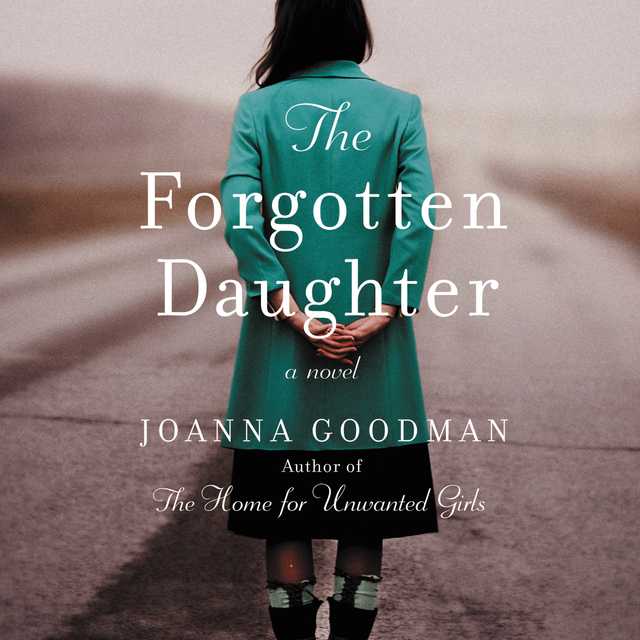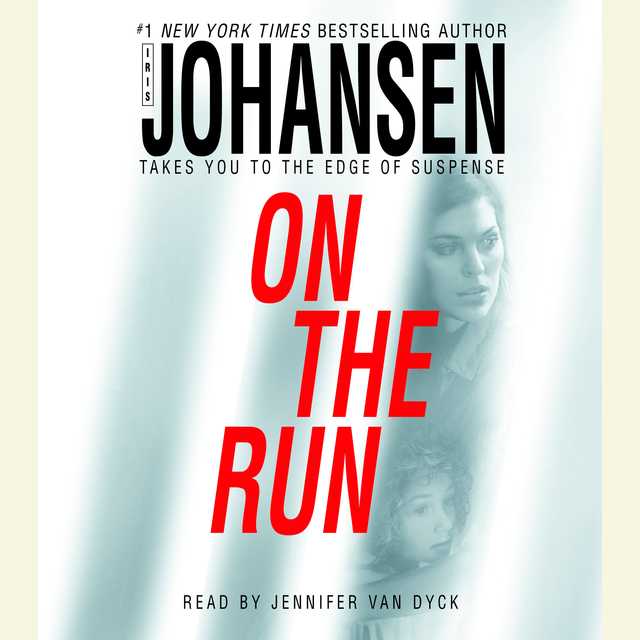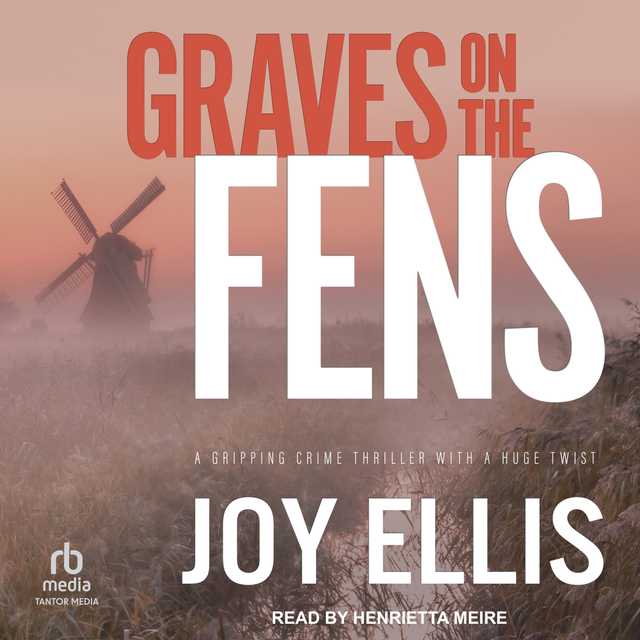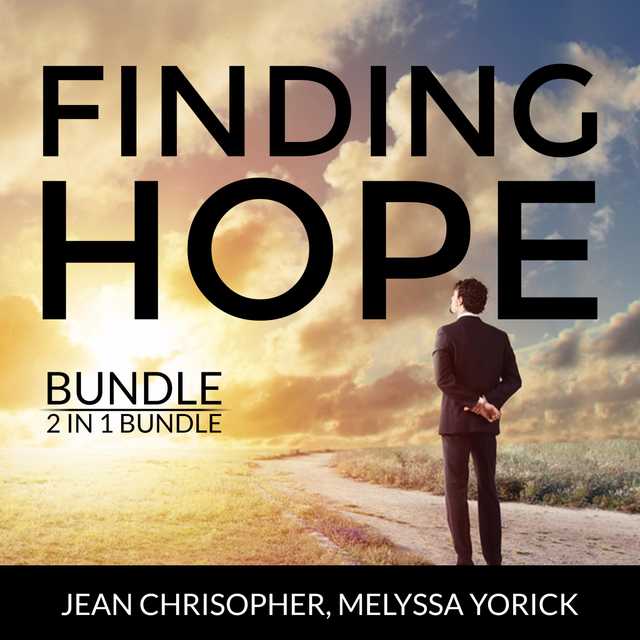The Forgotten Daughter Audiobook Summary
For fans of Jojo Moyes, from the bestselling author of The Home for Unwanted Girls, comes another compulsively readable story of love and friendship, following the lives of two women reckoning with their pasts and the choices that will define their futures.
Divided by their past, united by love.
1992: French-Canadian factions renew Quebec’s fight to gain independence, and wild, beautiful Veronique Fortin, daughter of a radical separatist convicted of kidnapping and murdering a prominent politician in 1970, has embraced her father’s cause. So it is a surprise when she falls for James Phenix, a journalist of French-Canadian heritage who opposes Quebec separatism. Their love affair is as passionate as it is turbulent, as they negotiate a constant struggle between love and morals.
At the same time, James’s older sister, Elodie Phenix, one of the Duplessis Orphans, becomes involved with a coalition demanding justice and reparations for their suffering in the 1950s when Quebec’s orphanages were converted to mental hospitals, a heinous political act of Premier Maurice Duplessis which affected 5,000 children.
Veronique is the only person Elodie can rely on as she fights for retribution, reliving her trauma, while Elodie becomes a sisterly presence for Veronique, who continues to struggle with her family’s legacy.
The Forgotten Daughter is a moving portrait of true love, familial bonds, and persistence in the face of injustice. As each character is pushed to their moral brink, they will discover exactly which lines they’ll cross–and just how far they’ll go for what they believe in.
Other Top Audiobooks
The Forgotten Daughter Audiobook Narrator
Esther Thibault is the narrator of The Forgotten Daughter audiobook that was written by Joanna Goodman
Joanna Goodman is the author of the bestselling novels The Forgotten Daughter, The Home for Unwanted Girls,and The Finishing School. Originally from Montreal, she now lives in Toronto with her husband and two children.
About the Author(s) of The Forgotten Daughter
Joanna Goodman is the author of The Forgotten Daughter
More From the Same
- Author : Joanna Goodman
- The Finishing School
- The Home for Unwanted Girls
- Publisher : HarperAudio
- Abraham
- American Gods [TV Tie-In]
- Dead Ringer
- House of Sand and Fog
- Prey
The Forgotten Daughter Full Details
| Narrator | Esther Thibault |
| Length | 12 hours 57 minutes |
| Author | Joanna Goodman |
| Category | |
| Publisher | HarperAudio |
| Release date | October 27, 2020 |
| ISBN | 9780063034082 |
Subjects
The publisher of the The Forgotten Daughter is HarperAudio. includes the following subjects: The BISAC Subject Code is Family Life, Fiction
Additional info
The publisher of the The Forgotten Daughter is HarperAudio. The imprint is HarperAudio. It is supplied by HarperAudio. The ISBN-13 is 9780063034082.
Global Availability
This book is only available in the United States.
Goodreads Reviews
Angela M
January 15, 2021
A snapshot of a shameful time in Canadian history in the not too distant past is depicted Joanna Goodman’s The Home for Unwanted Girls. The harrowing story of the Duplessis Orphans, the money driven involvement of the Catholic Church in diagnosing healthy orphans as mentally deficient for payment by turning orphanages into insane asylums; the politics that influenced it and abetted it, and the impact on these innocent children and their families. Elodie, the young girl from the first book, lucky to have been reunited with her family, is now middle aged, thinking of joining the fight against the people who imprisoned her and 20,000 other children in this sequel. Locked up, abused, as a child, she wants justice, restitution, closure. Elodie mostly wants acknowledgement and apologies from those who did this to her and so many other children who were not as fortunate as she was.The separatist movement in Quebec in the 1950’s and 1990’s with the passion of those on either side of the issue, the violence that occurred and the impact on families with different points of view is also the focus this story. It is through the character of Veronique, her relationship with her father, a convicted murderer in the separatist movement in Quebec in the 1950’s and with Jamie, her lover, who is an anti separatist during the 1992 fight for Quebec’s independence from Canada. Elodie and Veronique connect through James, who is Elodie’s brother.The plot gets a little complicated, and very dangerous, but I was engaged, even with the detailed political issues. I was mostly impacted by the stories of these two characters each coming to terms with their past and their present. The novel is full of emotion - hate, grief, resentment, a lot of sadness, but also resilience and acceptance and love. An interesting and touching story. I received a copy of this book from Harper through Edelweiss.
Jen CAN
February 28, 2021
I surprisingly enjoyed this much more than I thought I would. A shameful history of Quebec I was unaware of. It took place in the 1950’s when the French premier, Duplessis, had children from an orphanage moved into mental institutions to secure more federal funding. How horrifying.This story focuses on 2 unique female characters. One a survivor of the institution. The other a daughter of a political separatist & murderer. Weaved in is a romance that is tested with conflicting political views.Quebec vs the other provinces. Wanting to separate. The vote never succeeded and the disappointment resulted with some more enraged justifying revolt in aggressive ways.Even today, the sense of rivalry still exists between provinces. One can see it in hockey - when the Toronto maple leafs take on the Montreal canadiens. Also in travelling to different parts of the province. Many don’t even speak English- Surprising when we are considered a bilingual country. My mom is French Canadian but I can’t speak it worth a damn although I suffered through it in school up to grade 10, as it was mandatory in school. C’est la vie -that is life.I haven’t read The Home for Unwanted Girls just yet, but it is moving up my list.4⭐️
Lindsay - Traveling Sisters Book Reviews
November 08, 2020
3.5 stars.An informative, eye-opening look into French-Canadian history, the Duplessis Orphans and Quebec’s fight to gain independence.1990’s: Veronique’s father is the infamous Leo Fortin, a notorious FLQ leader who spent a decade in jail for killing a prominent politician during a political standoff in the 1970’s. Vero has grown up in the shadow of her fathers extreme separatist image — always expected to follow in his footsteps. Vero meets and falls in love with James Phenix, a hard working journalist whose job is to follow the politics of Quebec separating from Canada which he strongly disagrees with. Though Vero and James have extreme opposing political views, their love is strong and passionate and they vow to not let politics stand in their way. James sister, Elodie, is one of the Duplessis Orphans who has reentered society after years of abuse and hardships while under the care of the nuns in the orphanage-turned-asylum. In Goodman’s previous novel, Home For Unwanted Girls, she offers an intimate look into the Quebec governments decision to turn orphanages into mental institutions in order to gain more money per patient. This novel is somewhat of a continuation of that story (yet not a series) incorporating the long term struggles and suffering those innocent orphans faced while locked away and hardships once released into society with no education or training. I strongly recommend reading that novel before this one to give insight into the history of this time. This was an informative, insightful novel that was heavy on political detail. It was an eye-opening look at this time in Canadian history which I appreciate learning more about. However, I found the depressing and somber tone of the storyline outweighed my personal investment and connection and I didn’t particularly “like” any of the characters. The dark and somber feeling made it feel more drawn out and lengthy. I found that there were several situations where characters were unrealistically forgiving. This took away from my investment in the story and kept me at a distance from the storyline.A main takeaway for me from this story is the amount of extreme hatred that can be passed down through generations. This is so very upsetting and frustrating and unfortunately is still completely relevant in our present world.Overall, this was a heavily detailed look into this time in our history which I was thankful to learn more about. It was more of an educational read rather than an enjoyable one.Thank you to Edelweiss for my review copy!
Elyse
November 27, 2020
Just finished it. As an American ....I read this Historical fiction closely, and thoroughly enjoyed it. It filled in holes of Canadian history for me, and the characters felt very real. I could see this book as a movie. I’ll write a fuller review sometime this weekend.I’m back: it’s LONG.....( thank you ahead of time for those who read it)....Always much appreciation if people read them - but nobody ever needs to. Sometimes I blabber on because I just need to get things out of my head for myself. This was one of those times.... I wrote this review more for my own completion - my own desire - with an interest of understanding aspects of Canadian political history. Joanna Goodman is a Canadian author known for writing historical fiction novels. I’m an American. This book supplied me with what I was looking for.I didn’t rush read it...I enjoyed the FICTION aspects....and was thankful that ‘the fiction’ helped me learn the history. The fiction storytelling added the emotional experience..........the history, itself, was deeply complicated and compelling. YES....I TOOK A SIDE.....( one side being more moral than the other)....but the side I WASN’T on had some valid issues to digest. I chose this as my first book to read by the author, ( but I do own a copy of “The Home for Unwanted Girls”) > even being aware of the fact that many readers didn’t enjoy this book as much as “The Home of Unwanted Girls”). I understood their criticism so completely and thank many readers for their reviews....but it’s funny the criticism that I heard about this book was the exact reason why I chose it. (most of the other readers who found criticism were Canadian and perhaps knew more of this history than I did). HISTORY- POLITICAL STRIFE?/!..... ....BRING IT ON > it’s what I needed. I just didn’t want to fall flat on my face being bombarded with DRY HISTORY...NOTHING ABOUT THIS BOOK WAS DRY FOR ME. I was hungry for all the facts...( thankful for the flawed characters to round out my learning).Some readers thought the political history was too overloaded ( but that’s what I was looking for).....so, it was a win for me. Others said.... one of the characters ( Elodie), in this book was from the orphanage in “The Home for Unwanted Girls”.... and that this book didn’t cover as much details about the orphanage that turned into a mental institutions....( perfect!).....it wasn’t the prime theme I was looking for.However... I felt like I got two books and one— with more emphasis on the parts that I was looking for.Here are a few details about the orphanage/turned mental institution —found in both books:Elodie says: “They told me I was mentally challenged. One day I was in school, an orphan. The next day, bars went up on the windows and mental patients were shipped in. That was it. From that day on, the nuns and the doctors spent the next two decades convincing me I was crazy”. “In the fifties the Duplessis government made a shocking decision to convert the province’s orphanages into mental institutions to gain larger subsidies from the federal government. Seemingly overnight, thousands of Quebec orphans were reclassified as mental patients—“ “The Bedard Report of 1962 revealed that about one-third of the providence’s twenty thousand mental patients did not belong in the institutions, and it put an end to the monstrous practice. Many of the orphans who had reached adulthood were released from these institutions. Today they are grown up and they are angry. They call themselves the Duplessis Orphan Committee”. A group of men and women were marching in front of Cardinal Turcotte’s office at the Archdiocese of Montreal. They wanted justice. Louise Tremblay was sent to Mont Providence Hospital in 1950, when she was six years old”. Louise wants an apology and compensation. She’s on welfare, and she can’t read or write. She also can’t work because of a back injury from all the beatings she had endured. The Duplessis orphans were rallying together and speaking up. They wanted to be heard. They were unwilling to be ignored anymore. They wanted everyone to know what was done to them and why. So......I was familiar- enough - for now anyway - about the history of the ‘unwanted girls’......Moving on...... with....the.....POLITICAL HISTORY of the FLO ( French de liberation du Quebec), and the REFERENDUM....( a general vote by the electorate on a single political question that has been referred to them for a direct decision)....BECAUSE.... I didn’t know enough about it or understand what the real issues were ....And.... .....given that my own daughter lives in Canada has become quite an advocate for justice: Blacks and Ingenious, I wanted to learn as much history as I could. I’m proud of her studying Canadian history - protesting- holding meetings at her house - having valuable discussions regularly. But......I was hoping for a ‘story’ to go along with the ‘history’: which Joanna Goodman provide. ( I did a little of my own history searching as I read the historical facts in this book, too, just to round out my understanding.THIS BOOK WAS EXACTLY WHAT I WAS LOOKING FOR....The storytelling of the characters were just enough - not too much - but helped me visualize the complications and the divide between the French and English Canadians. “After the British conquered the French in 1760, Quebec’s economy switched into the hands of the English. English became the language of business, with the Anglophones filling all the highest positions in the Providence— management, white-collar, civil service. The French were completely marginalized, which is pretty much how it stay for the next two hundred years”. Between 1995 to 1997.... “All I can remember thinking is how fragile life is”. James Phenix is having a conversation with Leo Fortin who served 12 years in prison for a murder he committed in 1970 as part of the cause. James loves Leo’s daughter,Veronique Fortin....who was only a baby when her dad went to prison. James sighs >>> thinking “Why doesn’t he just come clean? Either take credit for himself or set Veronique free of the burden she carries of having a murderer for a father. If he didn’t actually do it, why not exonerate himself? Why won’t any of them tell the truth after all this time?” “It wasn’t an accident, Leo says. I can tell you that. The media thought maybe it was, or that’s the story they told to make us look incompetent. But we made a decision to kill him and we did. Sometimes I can’t believe we did it. I couldn’t believe it then, and I still can’t”. “But it happened”. “What what is that like? Watching another man die?” “You’re numb. I was . . . It’s impossible to describe. It’s surreal. You have to shut a part of yourself down. You act on instinct. We just kept moving after we did it. We had to keep moving, stay busy, so we wouldn’t think about what we’d done. We weren’t violent guys”. “James has to suppress his anger. He tries not to react, bites his tongue”. Leo felt there was a reason for killing the politician - Pierre Laporate - a very tough decision but he acted on his convictions.The only reason Leo was even talking about it with James was because he loved his daughter and she wanted to understand. Leo felt that what he did was for his people—the workers—the exploited—the long-suffering French slaves in Quebec. He felt he killed for a cause. Leo didn’t believe young people would ever understand what it was like for them ‘back then’. Leo Fortin may have been an idealist— but he didn’t think he was misguided.All the years that he spent in prison, were years that he wasn’t with his wife or daughter. He didn’t enjoy prison— stripped of dignity and his spirit— but the question continued to remain— wouldn’t he have rather watched his daughter grow up? Leo said ... “ask me after the referendum”. [Referendum: a general vote by the electorate on a single political question that has been referred to them for a direct decision]Pierre Laporate ( 1921-1970) was a French Canadian lawyer, journalist and politician who was Deputy Premier of the province of Quebec before being kidnapped by members of a group Front de liberation du Quebec (FLQ), during the October crisis. His body was found in the trunk of Paul Rose’s car. Veronique was a passionate supporter of Quebec independence.Her boyfriend James, wanted to know if her father would advocate violence for her if the outcome didn’t go her way? “Not if it meant she would wind up in jail. Jail is the worst place on earth”. Elodie, was the sister of James. She was swept up in the referendum fever— watching coverage on the news, discussing it with her friends. Everyone had an opinion. People worried about the economy if Quebec separated. They worry about their futures. In 2006, the House of Commons passed a symbolic motion recognizing Québécois as a nation within a united Canada. People found themselves swept up in a throne of patriots, waving their ‘NO’ banners and homemade signs. “UNITED WE STAND, DIVIDED WE GET OUT BUTTS KICKED. MY CANADA INCLUDES. MY CANADA INCLUDES QUEBEC. VOTE NO SO WE DON’T BECOME THE 51ST STATE! TORONTO LOVED QUEBEC! PLEASE DON’T GO!” “STRONG, PROUD, & FREE in French and English”. James, a journalist, was grappling with his own integrity— never being able to wrap his head around the fact that his girlfriend‘s father was a murderer. He wrote a backstory that was good for his career but then lost his girlfriend, Veronique, over it. Being the daughter of Leo Fortin, the infamous FLO (French de liberation du Quebec), sure wasn’t easy. Did her father kill someone for his daughter, or with the simply a criminal? Her father thought he did what he did so that his daughter would have a better life. But she didn’t have a better life. She didn’t think it was fair to compare their situation in Quebec to slavery or Nazi Germany. Veronique says to her father:“Pierre Laporte was not at war with you. He never signed up for combat. He was just playing football outside his house”. “Violence isn’t the way”, Veronique says. The FLO was not the reason things improved in Quebec. Things improved because of the Quiet Revolution, the PQ, Bill 101. . . Not because Veronique’s father, Leo blew up mailboxes and kidnapped a politicians. Leo’s killing a politician, ( for a cause he felt), cost a relationship with his daughter for the first twelve years of her life. Veronique asked her father if he felt any remorse? Was he sorry for killing a politician? Veronique always wanted to know her father’s answer. “I’m sorry a man had to die, but—““He didn’t have to die, though”. “I only ever wanted you to grow up in a world where you were in charge of your own destiny”. “Stop laying his murder at my feet”. I could really imagine the heavy burden Veronique carried around her entire because her father justified killing a man and her name. Great book!!!
Jennifer ~ TarHeelReader
October 27, 2020
The Forgotten Daughter is Joanna Goodman’s newest book, publishing October 27. I found out after I read it that it is a follow-up to Unwanted Girls, and while I typically like to read books in order, there was enough detail included that I felt I was reading a standalone story. That said, I definitely want to read the first book.I found the historical backdrop for this book absolutely fascinating. I’m not sure I’ve read another book set in Quebec, especially during the time it was seeking independence. It’s also the story of the “Duplessis Orphans” seeking justice for Quebec turning its orphanages into mental hospitals, in the 1950s. Thousands of children were affected.As I mentioned earlier, I was fascinated by the Quebec and Canadian history I knew little about. I still can’t wrap my head around what happened to those children. Overall, I thoroughly enjoyed this compelling story and will definitely be reading more from Joanna Goodman in the future.I received a gifted copy. All opinions are my own. Many of my reviews can also be found on my blog: www.jennifertarheelreader.com and instagram: www.instagram.com/tarheelreader
Paul
August 08, 2022
“From this day forward … you are all mentally deficient.” The historical underpinnings of Joanna Goodman’s first novel THE HOME FOR UNWANTED GIRLS bears repeating.It is the heartbreaking, shocking, gripping, disgusting (and yet, somehow, still heartwarming and touching) tale of one woman’s search for the illegitimate daughter that she was forced by her parents, her society, her government and the misogynistic religious demands of her church to abandon to the ministrations of an orphanage system run by the nuns. And, if that wasn’t bad enough, Duplessis, during what is now called La Grande Noirceur (the Grand Darkness), arbitrarily designated these orphanages as homes for the mentally ill, locked down asylums if you will, in order to defraud the federal government of a higher level of per capita funding. For many children in these orphanages, that change simply meant the doors were locked, the key was thrown away and adoption was moved from a remote likelihood to an impossibility.In THE FORGOTTEN DAUGHTER, Elodie Phénix, now an adult woman and a survivor of the horrific physical and mental abuse doled out every day by the doctors, nuns, and priests who staffed these houses of horror, seeks to bring the Catholic Church, the doctors, and the Quebec provincial government to task and to force them to offer an apology and financial retribution for their crimes. And make no mistake, these were definitely crimes. In the waning years of the 20th century, Elodie considered herself fortunate, “We’re lucky we’re alive … not like the ones who were killed and tossed down the incinerator, or out in the fields behind the hospitals. Apparently there’s a whole cemetery of dead orphans behind St Nazarius.”Joanna Goodman also puts this heart-rending search for justice in the context of Quebec French-English head-butting and the second referendum engineered by the Parti Québecois and Les Separatistes that came within a hair’s breadth of breaking the country into two. James Phénix, Elodie’s younger brother is an English-speaking journalist working for the Canadian News Association. That the love of his life, Véronique Fortin, a career criminal, a smuggler of cigarettes, booze, stolen CDs, and ultimately drugs, is the daughter of Léo Fortin, a fictional fifth member of the team of FLQ terrorists who kidnapped and murdered Pierre Laporte, and herself an unrepentant rabid separatist is an absolutely brilliant piece of fictional literary licence that allows the story of the Duplessis orphans to come to its conclusion in a real Quebec, torn apart by Pierre Trudeau's implementation of the War Measures Act, the Charlottetown Accord, and the conflict between Hugh MacLennan’s TWO SOLITUDES.I will repeat the conclusion with which I closed my review of THE HOME FOR UNWANTED GIRLS and that is to suggest that ANY person who attends a Roman Catholic Church and makes a contribution to their coffers via the collection plate must accept complicity in these ugly crimes. The Roman Catholic Church MUST be made to answer for them. If you are a Canadian who enjoys wonderfully well-written, absorbing historical fiction, you MUST read THE HOME FOR UNWANTED GIRLS and THE FORGOTTEN DAUGHTER. Brava to Joanna Goodman.Paul Weiss
Charlene
August 24, 2022
Good story telling here. It picks up 20 years after the end of The Home for Unwanted Girls (5 stars from me), continuing the story of Elodie (who suffered through a brutal childhood in a Quebec Catholic orphanage/mental asylum) and picking up the story of her much younger brother, James, as he lives the stories that he reports about Quebec separatism and the 1995 referendum that kept Quebec as part of Canada. During the 10 year span of the novel, Elodie becomes an activist as she & her fellow survivors of the orphanages fight for an apology and reparations from the Church and the provincial Quebec government. James meets and loves Veronique, a passionate separatist who is under the influence of a father who was part of the radical FLQ cell who murdered a hostage when she was only a few months old. Veronique refuses to "conform" to society, she lives a life on the edge, involved in illegal but lucrative smuggling with her uncle and cousins. (This was one part I had trouble with, difficult for me to totally sympathize with her character.) A critical part of the story was the gradual working out of the anger in Vernonique's life. This part of recent history was a revelation to me . . . I have very vague memories of the referendum vote but never knew any of the background on it. Author was a very young journalist covering the vote in Montreal so this part of the book pulls on her own experience; just as the earlier novel used her mother's experience of growing up half Anglo and half Francophone in the 1950s to make that time seem very real. Good story. I think Elodie is the character that will stay in my memory. Lots of issues to think about from the lives of all the characters. I'd probably rate this one a 5 if I hadn't been a bit disappointed with the first half. 4.5, very glad I read both of these novels by Joanna Goodman.
Tammy
March 11, 2022
Tercer libro de Joanna Goodman y como siempre me ha pasado con esta autora, he disfrutado la historia de principio a fin.En La hija olvidada tenemos la historia de Veronique quien ha vivido bajo el hecho de que su padre fue un terrorista convicto del Frente de Liberación de Quebec, Veronique creció escuchando el rechazo de su padre hacia el sistema y hacia los ingleses, por lo mismo, gran parte de las ideologías de su padre se han ido quedando con ella. Cuando conoce a James, un periodista de la Canadian New Association todo cambia, ya que el es todo lo que ella siempre ha rechazado.James y Vero tienen una conexión muy intensa y son muy compatbiles en todos los sentidos, menos en sus ideologías políticas, y por lo mismo su relación se vuelve bastante tortuosa en algunos momentos, sobre todo cuando James antepone sus ambiciones a ella, ya que desde que conoce a Veronique su único gran objetivo es entrevistar a su padre. También conoceremos que pasó con Elodie, un personaje que conocimos en “El hogar de las niñas indeseadas” Acá podemos ver el después de Elodie y conocer todo lo que ha tenido que pasar luego de vivir esos tormentosos años cuando los orfanatos de Quebec fueron convertidos en hospitales psiquiátricos.Principalmente la historia se dedica a mostrarlos la vida y convicciones de estos tres personajes, y también contarnos los diferentes puntos de vista con respecto a la separación de Quebec, ya que nos encontramos con los que están a favor, los que están en contra y también aquellos que no se sienten cómodos tomando una postura ya sea porque no comprenden las motivaciones de cualquiera de las dos partes, o porque han tenido vivencias personales que los ha mantenido al margen de la disputa.La historia es bastante profunda, pero la autora tiene una pluma muy liviana y sencilla, por lo cual no se siente una historia densa, sino que es muy amigable y fácil de comprender. La hija olvidada es una novela que se me hizo muy agradable, me encantó la forma en que la autora abordó la relación de Vero y James, y sobre todo el cierre maravilloso que tuvo la historia.
Annette
August 23, 2021
Another amazing book by Joanna Goodman! Note: Please read Home for Unwanted Girls first. Absolutely love her style of writing. I learned even more about Quebec, a province that we in the western provinces do not know much about, IMO.
Laurie • The Baking Bookworm
February 15, 2021
When I read Joanna Goodman's previous book The Home for Unwanted Girls, I learned a lot about a dark part of Canadian history that I was never taught in school growing up in Ontario. Set in the beautiful city of Montréal, Goodman's latest book The Forgotten Daughter brings readers into a tumultuous time in Québec's history and an equally turbulent relationship between a radical separatist and a journalist who opposes Québec separatism.This is an eye-opening look into French-Canadian history, this time focusing on the Separatist movement and the continued struggle of the thousands of Duplessis Orphans as they push to have their years of suffering acknowledged by the Catholic Church and the Québec government. Readers should be aware that this is a sequel of sorts to The Home For Unwanted Girls so while technically this book could be read as a standalone, I strongly recommend reading The Home for Unwanted Girls first to better understand the lingering issues facing Elodie and the other Duplessis orphans and why they were fighting so hard for an apology, closure and restitution for their decades of abuse and suffering.The story is told in two different eras - the 1950's and the 1990's - from the POV of a few characters. Véronique, a stanch Separatist and the daughter of Léo Fortin, a radical separatist and FLQ member who was convicted of murder in the 1950's, Elodie, now in middle age and her struggles as a Duplessis Orphan and James, Elodie's younger brother, an anti-Separatist in the 1990's who falls in love with Véronique despite their vastly different beliefs for their province's future. Through these characters, Goodman brings both sides of the separatist issue and the resulting tension, emotions and sometimes violence into her story. The Forgotten Daughter is a revealing look at Québec's fight for independence as well as the abuse of power and blatant corruption of the Québec government and the Catholic Church. As an Anglo-Canadian, I appreciate how Goodman brings the issues and emotions of Québec's Separatist issue into this story that is equally informative, emotional and inspiring.
Bookworm
October 19, 2022
An eye opening and shocking story about the horrific history of Quebec that involved the deceitful practice of changing orphanages into mental hospitals and having psychiatrists diagnose healthy children as mentally ill. This elaborate scheme involved the provincial government of the time, medical professionals and the catholic church and was done to collect more money since provinces were given more funding per person in mental hospitals than orphanages. The children who were victims of this crime, were not given any education and were severely abused. They were deemed "mentally ill" and exposed to barbaric practices that included straight jackets and lobotomies. The narrative was phenomenal! I was pulled into the prose and story. What differentiated this account than the first book was that it focused on a survivor after leaving the orphanage/mental hospital and followed her on her journey of healing and retribution. This book was actually like reading two separate stories. The second plot explored the FLQ and Quebec sovereignty in the 1990's. I actually recall the 1995 referendum to separate Quebec from the rest of Canada. I remember feeling overjoyed when the final vote was in favor to stay in Canada. However, I thoroughly enjoyed learning about the history of French Canadians and their poor treatment and segregation from English speaking Canada in the past 200 years.I was okay with the two disjointed plot arcs but I can see how some readers might not like it. An enlightening look at French Canadian history.
Lesincele
October 31, 2021
Me ha gustado muchísimo. Para mi es recomendable leer primero su anterior novela, ya que recupera la historia de los huérfanos de Duplessis y aunque puedas leer la novela, no llegarías a comprender el dolor que sufrieron en sus carnes y las injusticias que se veran en esta nueva novela.El tema de la independencia de Quebeck de Canada me ha resultado muy interesante también y el ver las relaciones entre los separatistas y los que no, y en definitiva, las tonterias que se pueden llegar a hacer por politica cuando lo único que importa esnla propia vida.
Most Popular Audiobooks
Frequently asked questions
Listening to audiobooks not only easy, it is also very convenient. You can listen to audiobooks on almost every device. From your laptop to your smart phone or even a smart speaker like Apple HomePod or even Alexa. Here’s how you can get started listening to audiobooks.
- 1. Download your favorite audiobook app such as Speechify.
- 2. Sign up for an account.
- 3. Browse the library for the best audiobooks and select the first one for free
- 4. Download the audiobook file to your device
- 5. Open the Speechify audiobook app and select the audiobook you want to listen to.
- 6. Adjust the playback speed and other settings to your preference.
- 7. Press play and enjoy!
While you can listen to the bestsellers on almost any device, and preferences may vary, generally smart phones are offer the most convenience factor. You could be working out, grocery shopping, or even watching your dog in the dog park on a Saturday morning.
However, most audiobook apps work across multiple devices so you can pick up that riveting new Stephen King book you started at the dog park, back on your laptop when you get back home.
Speechify is one of the best apps for audiobooks. The pricing structure is the most competitive in the market and the app is easy to use. It features the best sellers and award winning authors. Listen to your favorite books or discover new ones and listen to real voice actors read to you. Getting started is easy, the first book is free.
Research showcasing the brain health benefits of reading on a regular basis is wide-ranging and undeniable. However, research comparing the benefits of reading vs listening is much more sparse. According to professor of psychology and author Dr. Kristen Willeumier, though, there is good reason to believe that the reading experience provided by audiobooks offers many of the same brain benefits as reading a physical book.
Audiobooks are recordings of books that are read aloud by a professional voice actor. The recordings are typically available for purchase and download in digital formats such as MP3, WMA, or AAC. They can also be streamed from online services like Speechify, Audible, AppleBooks, or Spotify.
You simply download the app onto your smart phone, create your account, and in Speechify, you can choose your first book, from our vast library of best-sellers and classics, to read for free.
Audiobooks, like real books can add up over time. Here’s where you can listen to audiobooks for free. Speechify let’s you read your first best seller for free. Apart from that, we have a vast selection of free audiobooks that you can enjoy. Get the same rich experience no matter if the book was free or not.
It depends. Yes, there are free audiobooks and paid audiobooks. Speechify offers a blend of both!
It varies. The easiest way depends on a few things. The app and service you use, which device, and platform. Speechify is the easiest way to listen to audiobooks. Downloading the app is quick. It is not a large app and does not eat up space on your iPhone or Android device.
Listening to audiobooks on your smart phone, with Speechify, is the easiest way to listen to audiobooks.






























